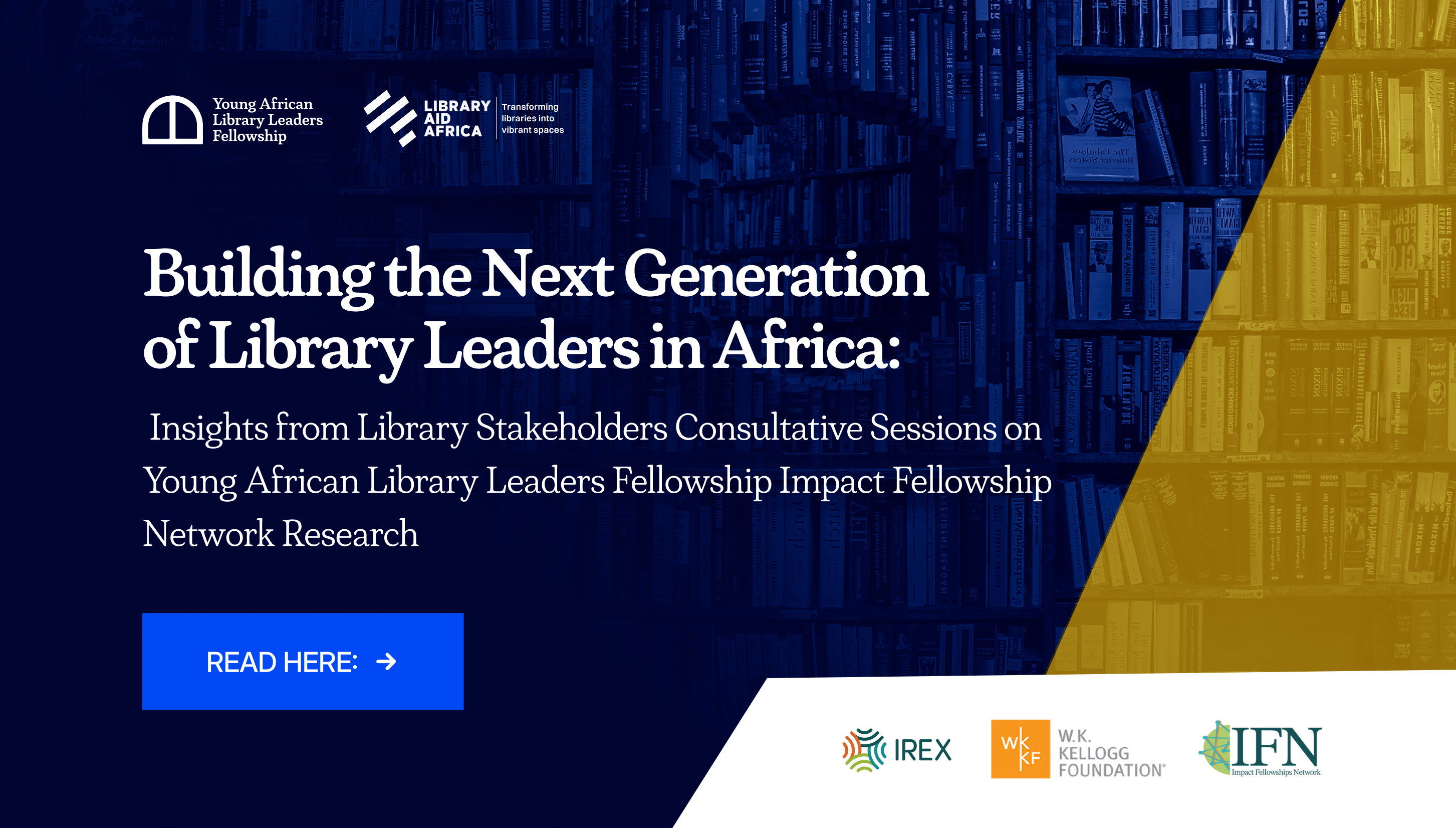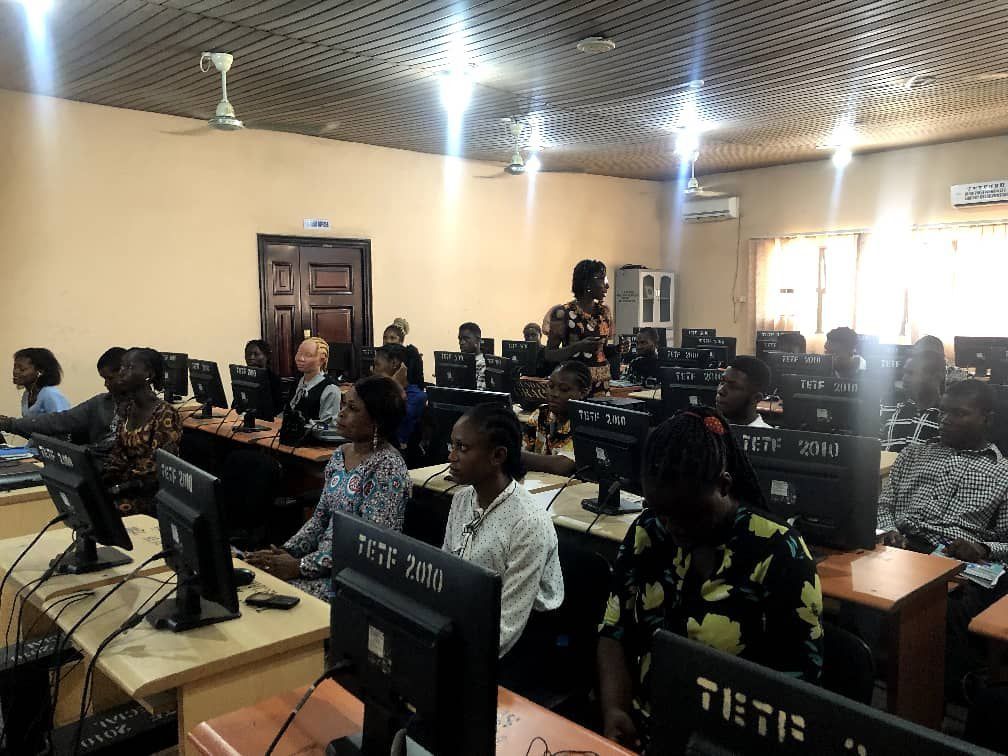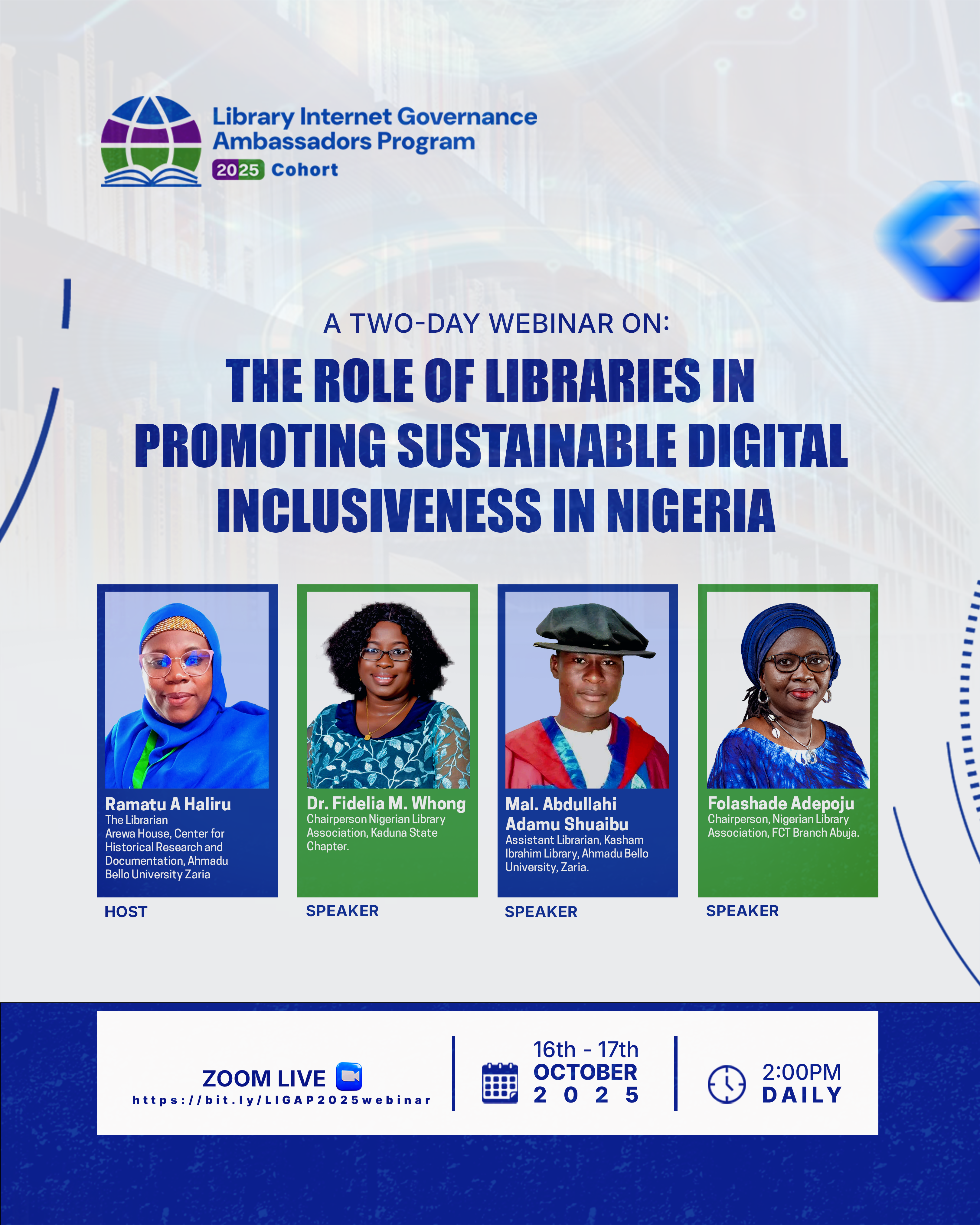Building the Next Generation of Library Leaders in Africa
October 29, 2025 | 4 mins

Building the Next Generation of Library Leaders in Africa: Insights from Library Stakeholders Consultative Sessions on Young African Library Leaders Fellowship Impact Fellowship Network Research
Across the African continent, young library leaders are emerging with fresh energy, new skills and bold ideas while senior librarians hold decades of wisdom and experience. The question Library stakeholders are asking is, how do we bring these generations together to reimagine the profession for Africa’s future?.
During our recent consultative sessions with library associations and national libraries across African countries on the ongoing research on the impact of the Young African Library Leaders Fellowship (YALLF), we gathered important insights on what stakeholders see as the next step for YALLF and the future of librarianship on the continent.
One recurring theme was the gap between young library leaders emerging from programs like YALLF and the experienced senior librarians who currently hold leadership spaces. Stakeholders suggested that YALLF could be structured in such a way that it brings these two groups together. They see mentorship as the tool that can connect the wealth of experience held by senior librarians with the energy, creativity, and advocacy skills of younger leaders.
Senior librarians with more than 10 or 15 years in the profession, have institutional knowledge, networks, and leadership experience that will go untapped if fellowship programs are not designed to include them. Meanwhile, young librarians bring fresh skills, new ideas, digital expertise, and advocacy approaches that resonate with today’s realities. By merging these strengths through mentorship, librarianship in Africa can become more attractive, especially to young people who study library science but often choose not to practice.
Stakeholders also pointed out that librarianship is not an irrelevant or stagnant profession. Rather, the stories we tell about it and the visibility we create shape how it is perceived. They believe YALLF can be better positioned and promoted as a bridge that can help rewrite these narratives by positioning librarianship as a profession that advances digital literacy, promotes safe internet use, and empowers communities across Africa. The YALLF program should work towards strategic impact storytelling that reaches young people regardless of their professional pursuits.
Another concern raised was around accountability and sustainability of professional training like YALLF. Too often, participants graduate from impactful programs but remain independent actors, without integration into the existing library systems in their countries. Stakeholders emphasized that national library associations and structures already exist and should be leveraged to create systemic change that benefits the library ecosystems at all levels. Alumni should not operate in isolation, but within these systems, where they can learn from others, influence leadership, and drive systemic change. Their skills and knowledge should be channeled into existing structures that can amplify their impact. This way, they can scale their impact, carry out more projects, and pass on the knowledge gained from the fellowship programs.
At the same time, each country faces unique contexts and challenges. National libraries and associations deal with issues that are specific to their environments ranging from the absence of vibrant young leaders in national library associations to declining interest in library library and information education and lack of national library policies in some countries. Stakeholders believe YALLF can respond strategically to these differences by empowering fellows to serve as national representatives and case study leaders. This structure would allow YALLF participants to address country-specific concerns while still contributing to a Pan-African vision for librarianship.
Another important conversation was about technology. Stakeholders are keen to see librarians engage more deeply with artificial intelligence and emerging digital tools. They see the fellowship as a space to prepare librarians not just for today’s challenges, but for the future of digital transformation in Africa.
It is clear that library stakeholders across Africa see mentorship, integration into national systems, contextual relevance, visibility, and digital preparedness as the strategic next steps for YALLF.
Written by:
Peace Agada,
Community Engagement Officer, Library Aid Africa
Through this research Library Aid Africa is part of the Impact Fellowships Network (IFN) 2025 Impact Study. This study is a collaborative research initiative implemented by IREX and supported by the W.K. Kellogg Foundation that aims to deepen our understanding of fellowship impact while building a supportive community of practice.


